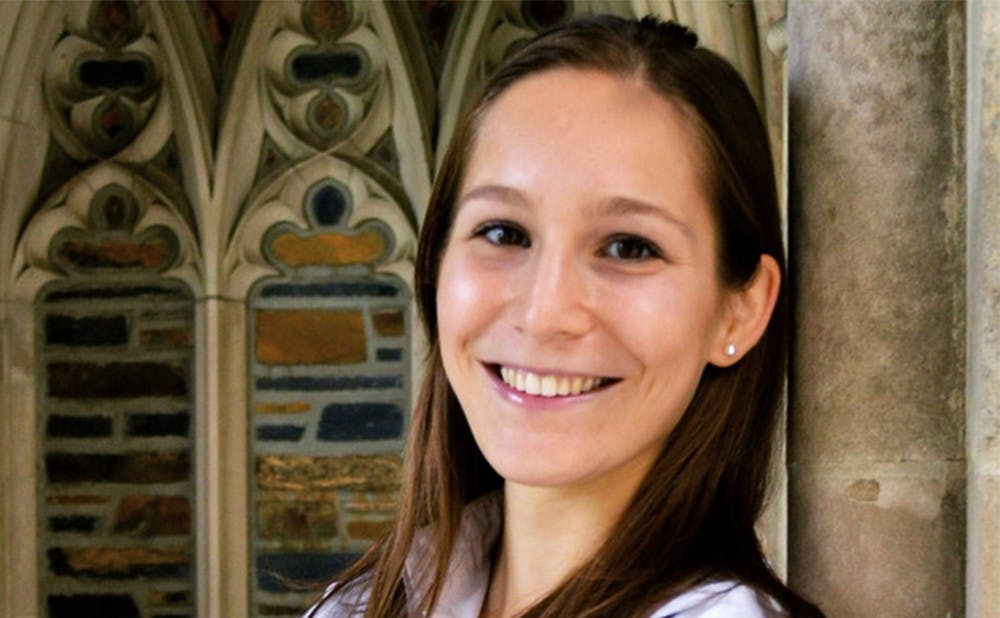Following criticism that Mars One’s mission to the Red Planet may not be written in the stars, senior Laurel Kaye defends the mission’s validity.
Kaye—a physics major from Long Island, N.Y.—is one of 100 finalists for a project to send humans on a one-way trip to Mars. Mars One, the Netherlands-based nonprofit group, will hold the final round applications this year, ultimately selecting 24 people to colonize the Red Planet in teams of four starting in 2024. Joseph Roche—an astrophysicist at Trinity College’s School of Education in Dublin and one of the 100 applicants—recently spoke out about the project, hinting that the entire project may never happen. But Kaye was quick to fire back at Roche’s remarks, which claim that the company is focused only on earning money and unconcerned with regards to safety.
“Mars One has not given me any reason to believe that our safety is not a chief concern, and if at a later time point I feel that human health or safety is being neglected, I would certainly remove myself from the program,” Kaye wrote in an email Wednesday.
It’s extremely important to be aware of all the potential dangers this mission entails, Kaye said, adding that she will not go if it appears too dangerous by the end. She added that she is willing to accept a certain amount of risk, but expects the technologies to be tested and subjected to criticism by the larger scientific community.
In an interview with Metro, a newspaper based in London, Roche also commented that the selection process was “not rigorous enough to reach the requisite standard of more traditional astronaut selection programmes."
Kaye, however, said that the selection process is far from over.
“Of course the selection process has not yet been rigorous enough, which is why it is not over but will continue for the next ten years,” she said. “The people who have made it this far are in no way ready and very likely might not be fit to become astronauts, myself included.”
She added that selection thus far has simply been a process of vetting people who are healthy, enthusiastic and well-educated individuals worthy of proper training and examination. Teams of four will be training, preparing and selected throughout the next ten years, she said.
Roche claims that Mars One ‘chose’ candidates purely for their ability to gain publicity and earn money, stating that “candidates were urged to do interviews for money, with the company saying: ‘If you are offered payment for an interview then feel free to accept it. We do kindly ask for you to donate 75 percent of your profit to Mars One.’"
Kaye responded that she, along with every other round three candidate, received this email—but added that the message was preceded by reminders not to feel pressured about accepting interviews.
“They ask kindly and I think that it is very appropriate of them to ask,” Kaye said, adding that the group deserves intellectual credit. “Any time someone makes money off of their idea, I don’t think it is improper to kindly ask for a portion of it.”
She added that regardless of Mars One's statements, she has never been offered any sort of money for interviews and has not given Mars One any kind of payment since the inexpensive application fee in 2013.
“I’m just another college student trying to pay off my loans and wouldn’t even think of donating,” she said.
Roche also addressed the implausibility of the Mars One mission, urging the company to support “more viable space missions.”
Kaye, however, argued the plausibility of Mars One’s claim that humans have the technology to get to Mars and set up a settlement, adding that she will need to see it confirmed over the next several years of planning, testing and critiquing.
Such a mission would lead to amazing advances in science and technology in many domains, such as human health, geophysics, sustainability, agriculture and space travel, Kaye added. The mission also has huge implications for humanity, she said.
“What does it say about us that we can work together as a global community and build the technology to send people to Mars?” she asked. "There is so much to gain in the attempt alone.”
Kaye said she has encountered her fair share of people who say it is not going to happen, and that she herself does not doubt the potential failure of the mission. Rather, she remains optimistic about the possibility of expanding boundaries.
“Sure, it might not happen in a decade, or possibly even three, and it might not happen through Mars One, but sending humans to Mars?” she said. “I believe firmly in human ingenuity and the human drive to do amazing things such as search for cures to diseases, find sustainable energy solutions and to take people to where they have never been before.”
Criticism is vital and it is what enables our scientific society to function, but there is nothing useful that comes from being obstinately close-minded, Kaye added. She urged people not to have too narrow a picture of success.
Get The Chronicle straight to your inbox
Signup for our weekly newsletter. Cancel at any time.
“I am not afraid of this mission’s failure because I don’t see an end to the project as a failure,” she said. “If one fifth grade girl is inspired to go into science because she sees that people are trying to get humans to Mars, then that is a success in my mind.”

